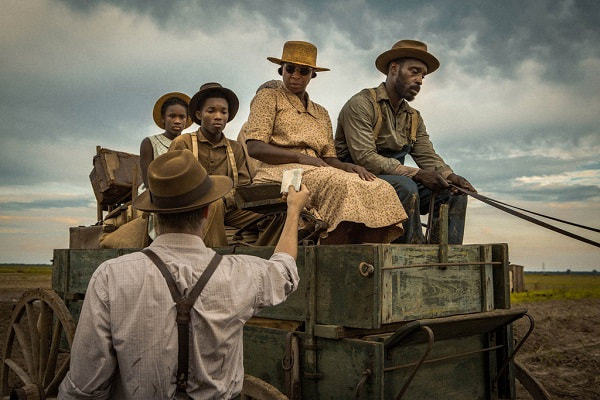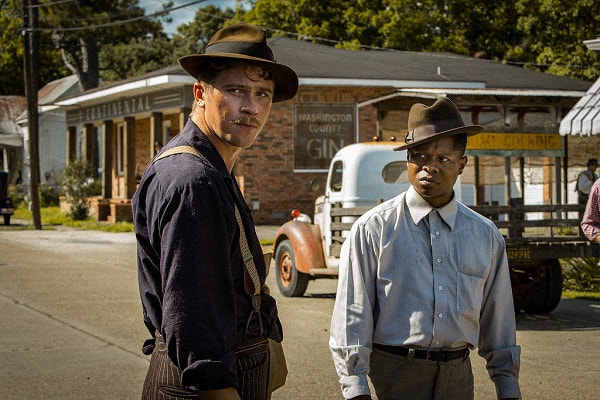|
By Adam Ray Palmer My, and Cineroom’s, second review of the 61st London Film Festival comes courtesy of that unknown distributor called Netflix. Directed by Dee Rees and released next month; Mudbound stars Jason Clarke, Carey Mulligan, Garrett Hedlund and Jason Mitchell. Mudbound follows a number of characters’ stories whose paths all entwine on a farm in rural Mississippi. Jamie (Hedlund) and Ronsel (Mitchell) both return home to their Mississippi town and go about adjusting to a different way of life following their service in the armed forces. The difference being, Jamie is white and his brother Henry (Clarke) owns the land and Ronsel is black and his family works for Henry. Coupled with this plot line, Henry’s wife Laura (Mulligan) also has her hardship to deal with; raising their family and making sure the Pappy of the house (Jonathan Banks), the stereotypical racist of the family, is kept satisfied. When reading up about Mudbound prior to catching it, it struck me like a film I had already seen many times over in some form. But like the wise-old quote states, “never judge a book by its cover”. Mudbound covers the saturated cinema territory of rural America and racism of the time, but it comes in at a new angle with the inclusion of post-war depression. There’s a depth to Mudbound that I didn’t expect and it keeps your intrigue until the end. Dee Rees sets the scene greatly in the opening five minutes. We see the two brothers digging a hole for their dead father, before stopping a black family (later we know it’s Ronsel’s) to ask for their help. The audience sees an awkward exchange before cutting to a time years before where we begin to learn about the characters. From scene one, we know there’s something bigger looming. For the next 90 minutes, we see character progression around the leads but everyone else on the edges fall by the wayside. That’s a theme that constantly rears its head in Mudbound because we have a lot characters to focus on, but not enough time to learn about them despite the lengthy run time. We have insight into Henry and Pappy’s personality and story which is just enough to peak our interest, but then we are not allowed to revisit them too often so we don’t fully understand their stance throughout - Pappy’s hatred from the human race especially. The film revolves a lot more around Ronsel and Jamie, which is where the film triumphs to be fair. We have seen racial and equality struggles many times over and a lot films in recent past have frustratingly missed a new angle to come in at, but Virgil Williams’ script has a meaty side dish of post-war depression and how that affected the racial tension around the mid-forties. Ronsel and Jamie find fellow ground with one another as they share painful experiences of the war. However, no one around them can quite understand their chemistry and rapport, especially because they are from different backgrounds. This ultimately climaxes with a difficult and tension-filled finale that will make anyone wince with anger and dismay. But like true cinema, sometimes it’s better to end a movie with the light rather than the dark. The closing monologue from Ronsel is touching and more apparent than sadly, ever. He rounds his speech off with “making the trip across to Germany again, but this time for love”. It’s a powerful line that needs to be heard in the present world more than ever. Mudbound can be laboured in areas, and follow several movies like it before in similar ways. But it feels like an important time in the planet’s history and there’s a crucial message I took away from it... no matter who you are, where you’re from, we are all the same when you strip us back. Let’s just look out for each other and stop being dicks, agreed? Cineroom’s rating: 3.5 stars Mudbound is out in UK cinemas on 17th November 2017 – certificate 15 Leave a Reply. |
Previous
|




6/10/2017
0 Comments